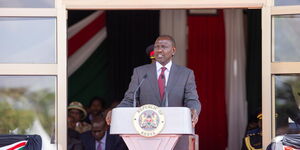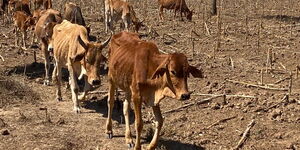The World Bank on Monday, July 31, gave three-pointers to President William Ruto’s government on how to turn around the economy.
Through its Kenya Country Economic Memorandum (CEM) issue titled Seizing Kenya’s Service Momentum, World Bank revealed that while Kenya had recovered admirably post-pandemic, there was still more that needed to be done to achieve economic prosperity.
In particular, the World Bank tasked the government to concentrate on the following key areas; management of public debt, openness to trade and strong foreign direct investment, and accelerated pace of job creation.
Controlling Kenya’s public debt
According to CEM, there has been a sharp rise in public debt, which has eroded fiscal space and raised debt sustainability concerns.
The report indicated that while Kenya had experienced exponential growth from 2020, it was financed by a borrowing spree from the government.
“The increase in expenditure was driven partly by large increases in debt-financed public investment, peaking at over 7 per cent of GDP in 2017 when the Mombasa-Nairobi Single Gauge Railway project was completed,” World Bank pointed out.
It was further indicated that while devolved units had their benefits, they burdened the country through increased recurrent expenditures.
Ruto’s government was advised that to maintain debt sustainability, the size of Kenya’s fiscal deficits and the pace of debt accumulation needed to be moderated.
“Although many governments have larger debts relative to GDP, the cost of Kenya’s government debt relative to its revenues is high by global standards,” the report warned.
Improving openness to trade and strong foreign direct investment (FDI).
World Bank noted that Kenya’s exports remained skewed as it heavily relied on agricultural exports with fewer service exports (tourism and travel, transportation, and financial services).
“Consequently, Kenya’s economy is much less trade-oriented than is the norm for peer and aspirational peer economies, depriving it of a major potential engine of growth and job creation,” the report revealed consequences of the unbalanced trading.
Kenya was advised to tap into export markets to generate opportunities for firms and help to overcome the constraint of the still-small domestic market.
World Bank further noted that FDIs remained low averaging 1 per cent of GDP and called for stimulating the sector.
“This will not only augment the limited pool of financing available locally to meet investment needs, but also promote structural transformation through positive knowledge spillovers into the domestic economy from firms with international knowledge, and integration in global value chains,” the institution remarked on the importance of stimulating FDIs.
Creation of job opportunities
World Bank noted that while poverty levels in the country were gradually reducing, this did not translate into enough new high-quality jobs.
“More than 800,000 people join the labour market every year, but formal sector jobs have increased by under 100,000 annually in recent years. The vast majority of the new entrants find low-productivity, informal work in agriculture and the non-agricultural informal sector,” the report indicated.
World Bank advised Ruto’s government that realising a demographic dividend would depend on the availability of sufficiently remunerative jobs and earning opportunities, without which too many families’ incomes will remain at subsistence levels.
“The economy will need to generate more high-quality jobs than has been the case in the recent period characterized by relatively high public spending, and a narrow and declining role of trade and foreign investment,” Ruto was advised.












